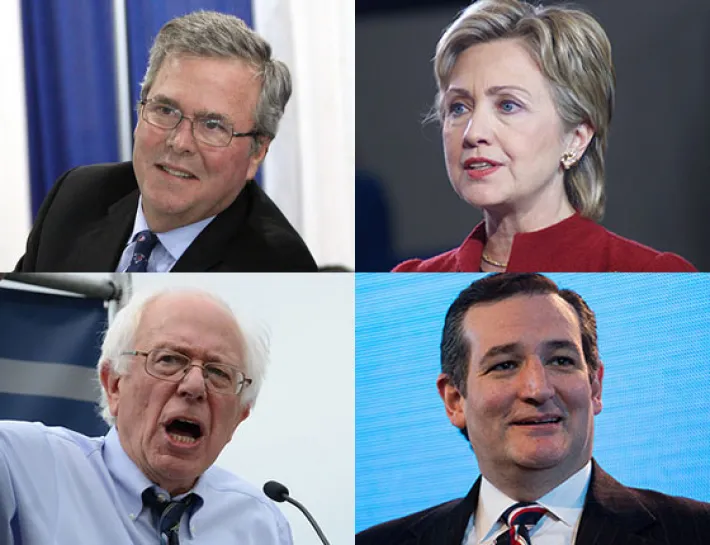
Perspectives July 13, 2015
10 More Questions for U.S. Presidential Hopefuls
Freedom House poses a second round of foreign policy questions for the expanding field of 2016 presidential contenders.

By Daniel Calingaert, Executive Vice President
When the initial wave of U.S. presidential contenders launched their campaigns this spring, Freedom House posed a set of questions to the candidates. We (optimistically) await thoughtful responses. The field has expanded in the meantime, and with 16 months to go before the general election, we have more questions for the candidates of both major parties:

1. The United States relies on repressive rulers in several key countries, such as Egypt, Ethiopia, and Thailand, to maintain stability, even when evidence of domestic discontent is significant. Do you think this is a sound strategy?
2. China recently passed a new national security law and is introducing legislation on counterterrorism and foreign nongovernmental organizations, all of which will intensify an already repressive political environment. Should these new laws prompt the United States to change the way it deals with China? If so, how?
3. Russian officials argue that the West shows little respect for Russian interests, most recently by pressing pro-EU policies in Ukraine, and thereby contributes to tensions with Russia. Do you think the United States should adopt a more conciliatory approach toward Russia to resolve the crisis in Ukraine and improve U.S.-Russia relations? Or should the United States keep up the pressure on Russia as the only effective way to bring about the withdrawal of Russian forces from Ukraine?
4. The U.S. government has muted its criticism of Iran’s human rights abuses despite a deterioration in conditions on the ground, including the ongoing detention of Washington Post reporter Jason Rezaian and other Americans. Do you favor or disapprove of this approach?
5. In recent years, countries around the world have introduced measures to tighten government control over the internet. What will you do to keep the global internet open and free?
6. Is the United States cooperating closely enough with its European allies to address security threats, foster economic growth, and pursue common interests? If not, what more should the United States do?
7. What will you do to advance the empowerment of women, so that they may participate on an equal basis with men in the political, economic, and social life of their countries? Do you support the International Violence Against Women Act, which would direct the State Department to develop a global strategy for addressing gender-based violence around the world?
8. How would you seek to persuade Venezuela’s government to release Leopoldo López and other political prisoners and ensure free and fair parliamentary elections in December? Would you impose visa bans on additional Venezuelan officials responsible for human rights abuses or continue U.S. government discussions with National Assembly president Diosdado Cabello?
9. Despite the historic shift in U.S. policy toward Cuba, including the reestablishment of full diplomatic relations, the Cuban government has detained over 200 civic activists in the past month. What should the U.S. government do to promote respect for human rights in Cuba?
10. Should the U.S. government close its Guantanamo Bay detention facility? If so, what should it do with the detainees?